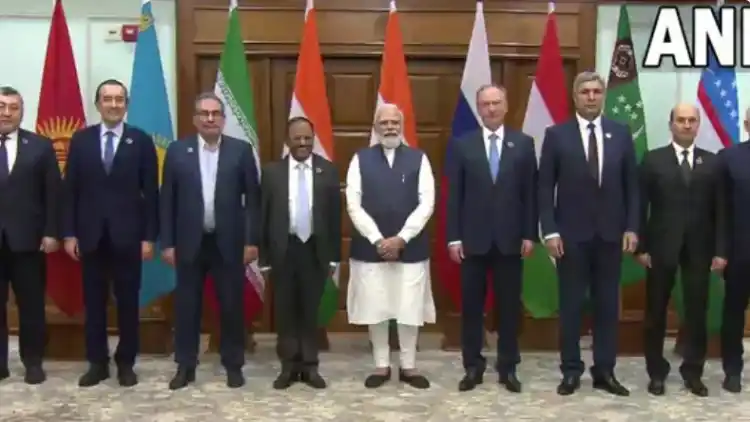The National Security Advisors of Iran, Russia, and five Central Asian countries – Tajikistan, Turkmenistan, Uzbekistan, Kazakhstan, and Kyrgyzstan - led by India’s NSA Ajit Doval have underlined the need to provide urgent humanitarian assistance to Afghanistan given the looming food crisis and poverty.
At the end of the third Regional Security Dialogue on Afghanistan held here, the participating countries released the 12-point “Delhi Declaration on Afghanistan,” that said, “humanitarian assistance should be provided in an unimpeded, direct and assured manner to Afghanistan and that the assistance is distributed within the country in a non-discriminatory manner across all sections of the Afghan society.”
This could be a message to Pakistan that is not allowing the Indian consignment of wheat from India for Afghanistan through its territory.
The participants discussed the evolving situation in Afghanistan, especially the security situation and its regional and global ramifications. All leaders asked for paying special attention to the current political situation in the country and threats arising from terrorism, radicalization, and drug trafficking.
Reiterated strong support for a peaceful, secure and stable Afghanistan, the declaration emphasized respect for sovereignty, unity and territorial integrity and non-interference in its internal affairs.”
Expressing deep concern over the suffering of the people of Afghanistan, the declaration condemned the terrorist attacks in Kunduz, Kandahar, and Kabul. “Afghanistan’s territory should not be used for sheltering, training, planning, or financing any terrorist acts,” it says.
The NSA's condemned in the “strongest terms” all terrorist activities and reaffirmed their firm commitment to combat terrorism in all its forms and manifestations, including its financing, the dismantling of terrorist infrastructure, and countering radicalization, to ensure that Afghanistan would never become a haven for global terrorism.
The declaration has called for cooperation against the menace of radicalization, extremism, separatism, and drug trafficking in the region.
It stressed the need for a national reconciliation process in Afghanistan and forming an open and inclusive government representing the will of all people of Afghanistan that has representation from all major ethnopolitical forces in the country. “Inclusion of all sections of the society in the administrative and political structure is imperative for the successful national reconciliation process in the country,” it said.
Another important point in the Delhi declaration is said the United Nations has a central role to play in Afghanistan and that its presence in the country must be preserved.
Emphasized the importance of ensuring that the fundamental rights of women, children, and minority communities are not violated.
The declaration also reiterated the participating countries’ commitment to assist Afghanistan to prevent the spread of COVID-19.

